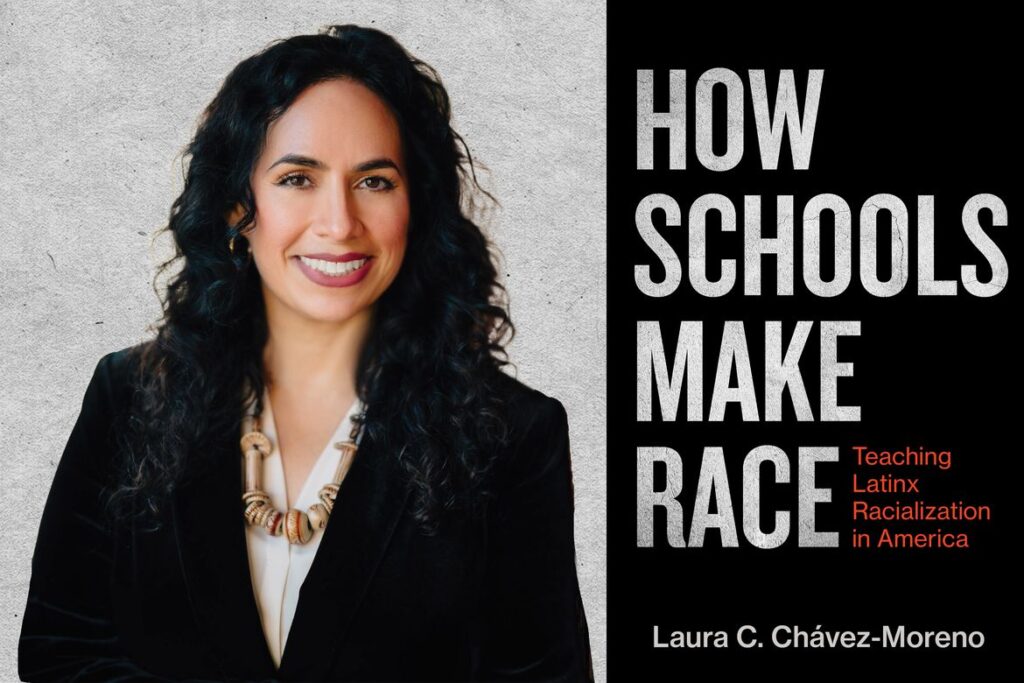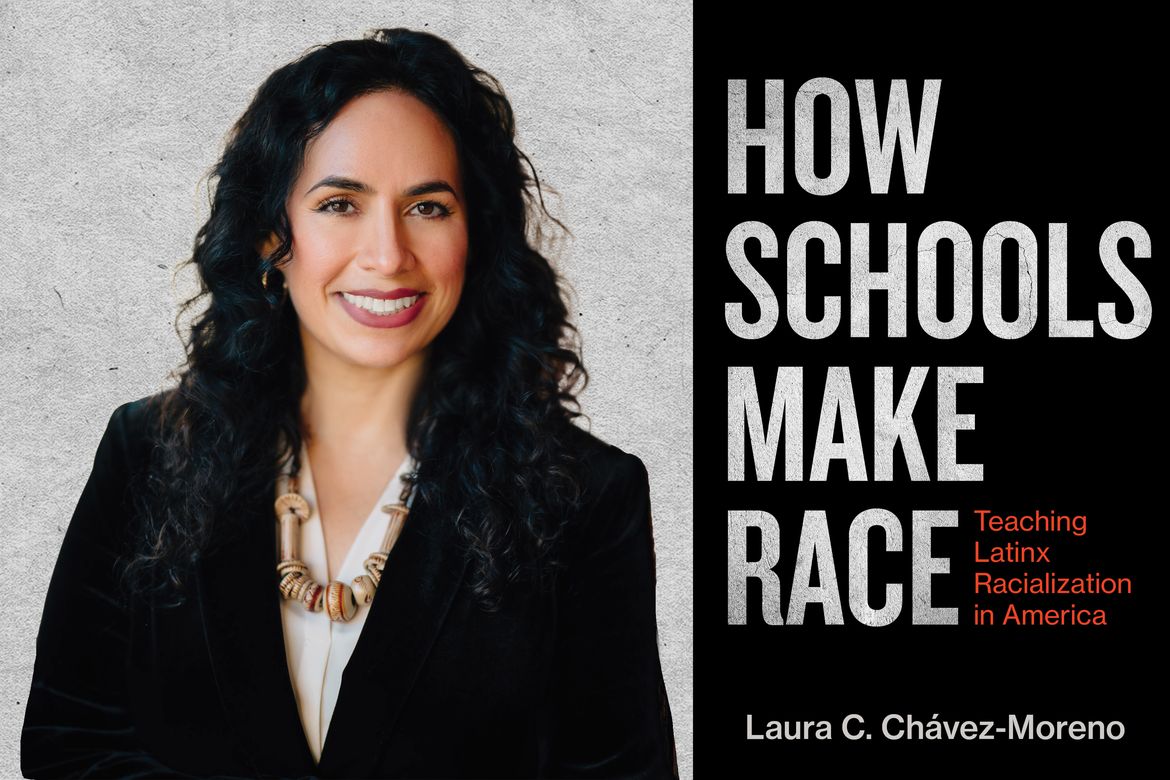Her book “How Schools Make Race: Teaching Latinx Racialization in America” received the Early Career Category recognition
UCLA Social Sciences

Stanley Wu Photography/composite by Trever Ducote/UCLA
Laura C. Chávez-Moreno, assistant professor in UCLA’s César Chávez Department of Chicana/o & Central American Studies and UCLA’s School of Education and Information Studies, received the Book of the Year Award, Early Career Category for her acclaimed book, “How Schools Make Race: Teaching Latinx Racialization in America” from the American Association of Hispanics in Higher Education (AAHHE) at a ceremony held March 8, 2025.
Chávez-Moreno’s book examines how educational institutions shape Latinx students’ racial identities, often in ways that reinforce systemic inequities. Through in-depth case studies of bilingual education programs, her research reveals how schools—despite good intentions—can perpetuate racialization and social stratification.
Drawing on her background as a former public school teacher and her academic scholarship, Chávez-Moreno advocates for “ambitious teaching” that centers race in the curriculum. Her work challenges educators to foster environments where students are encouraged to interrogate racial dynamics and develop critical consciousness.
AAHHE’s Early Career Category recognizes a book by an early career scholar whose initial career shows promising levels of productivity and excellence. The criteria to be considered by the selection committee are the impact of the candidate’s work, where quality reflects the highest standards of writing, research, and excellence and impact is demonstrated through evidence that the work has advanced the research field of Latinx and education.
The AAHHE Books of the Year Awards are a celebration of Hispanic culture, history and research excellence and are presented to Latinx/a/o authors to celebrate and recognize their contributions to higher education.
Learn more, here.

